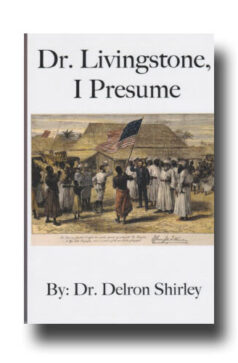A Promise to Believers
John the Baptist had promised that Jesus would baptize His followers in the Holy Spirit. (Matthew 3:11, Mark 1:8, Luke 3:16, John 1:33, Acts 1:5) Certainly the disciples anticipated this baptism in the Holy Spirit every day during their three years with Jesus. They did, indeed, experience the supernatural on a regular basis as they lived and traveled with the Master. They saw multitudes fed with only a handful of fish and bread (Matthew 14:20), they witnessed innumerable healings (Matthew 4:23) and deliverances (Mark 1:27), they drank wine that had been transformed from clear water (John 2:9), they marveled as storms at sea quieted at His command (Mark 4:39), they trembled as Jesus walked on water and even invited them to join Him (Matthew 14:28), they had even seen the dead raised to life again (John 11:44); but they never experienced the fulfillment of the promise to be baptized in the Holy Spirit. I can imagine that they must have doubted Jesus’ promise concerning being baptized in the Holy Spirit when they saw their Master taken in arrest and eventually executed without giving them the Holy Spirit. I’m certain that they were thrilled when Jesus renewed this promise after His resurrection. (Acts 1:5) In these last moments with their Master before He departed this earthly realm, He once again renewed the promise and commanded that they wait to receive this all-important impetus for their lives and ministry. (Acts 1:4-5)
The fulfillment of this divine promise finally came on the Day of Pentecost – just a matter of days after Jesus’ ascension back to the Father. Pentecost was the Jewish festival with two significant aspects. Spiritually, it commemorated the giving of the Old Testament law; physically, it celebrated the harvest. With this in mind, it is easy to see why the Lord wanted to wait until Pentecost to send the Holy Spirit. The giving of the Holy Spirit brought believers into a new relationship with God so that the Law became internalized in their hearts rather than codified on tablets of stone and in ink-filled books. (Jeremiah 31:33- 34, Hebrews 8:10-11) Additionally, the Holy Spirit is the agent of bringing in the spiritual harvest of souls that parallels the ingathering of the physical fruit of the earth. This is the reason why as soon as Jesus had told the disciples that they were to be His envoys in the world in the same manner that He was the Father’s representative, He breathed on them and commanded that they receive Holy Spirit. (John 20:22) It was for the same reason that He commanded them not try to go out and fulfill the Great Commission until they first tarried in Jerusalem for the outpouring of the Spirit. (Luke 24:49) Additionally, this is the exact motivation for His last words to them – that they were to receive power after that the Holy Ghost is come upon them, equipping them to take the message of salvation to the very ends of the earth. (Acts 1:8) Jesus repeatedly told the disciples that they were to go out and preach the gospel around the world; yet, He suddenly jerked them back from that task by telling them that they could not do so until they had received the promise of the Father – the promise that was fulfilled on the Day of Pentecost. (Luke 24:49, Act 1:4) He wanted to use this day to give a “jumpstart” to the spread of the gospel around the world. In the giving of the Great Commission as it is recorded in Luke 24:46-49, Jesus told the disciples that they would be witnesses to all the nations and that this witness would begin from Jerusalem. He then went on to direct them to tarry in Jerusalem until they would receive a supernatural gift from their heavenly Father.
In his second volume – the book of Acts – Luke told us the rest of the story when he recorded that on the day of Pentecost there were devout men from every nation under heaven gathered in Jerusalem for the celebration. (Acts 2:5) When the Holy Spirit was poured out on the believers who had gathered in the Upper Room, they were supernaturally given the ability to speak in the languages of all these visitors. The result was that men and women from all the foreign lands in addition to the local residents turned to Jesus that one day. It is only logical to assume that these visitors returned to their own homes once the festival was over. They took with them the message of salvation that they had heard on the Day of Pentecost. In essence, Jesus used the delay in filling the believers with the Holy Spirit as a way of inaugurating their mission of taking the gospel to the nations. As He had said, they began in Jerusalem, but they also instantly impacted the whole world. The miracle of Pentecost was not simply that there were supernatural manifestations of wind, fire, and tongues (Acts 2:2-4), that on one day the gospel was preached to men from every nation under heaven (Acts 2:5), or that three thousand responded to the message (Acts 2:41). It was that men were emboldened and empowered to stand up and preach the gospel. (Acts 2:14) Jesus had promised that it would be through physical manifestations of the presence of the Holy Spirit in the demonstration of signs and wonders that the disciples would be able to fulfill the Great Commission. (Mark 16:17-18) The record of those early Christians is that it was through Pentecostal manifestations that they were able to accomplish all they did to further the kingdom. (Romans 15:19, Hebrews 2:4) Not only is the work of the Holy Spirit of bringing in the harvest a historical reality, it is also a prophetic certainty, The Spirit and the bride say, Come. (Revelation 22:17)
Have you ever noticed that the twelve men who followed Jesus were almost always called “disciples” in the gospels, but became “apostles” in the book of Acts? This name change signified the radical change that occurred in their lives when they were empowered by the Holy Spirit on the Day of Pentecost. Because of the power that the disciples received when they were filled with the Holy Spirit on the Day of Pentecost, the number of believers multiplied from one hundred twenty to three thousand in a single day – a twenty-five thousand percent increase! (Acts 1:15, Acts 2:41) The phenomenal outpouring of the Holy Spirit totally revolutionized the lives of the disciples – transforming them into radically different people. The men who only a few days before cowardly denied knowing Jesus (Mark 14:72) and forsook Him and hid behind locked doors rather than risk being accused with Him (Matthew 26:56, Mark 14:50, John 20:19) suddenly became fearless defenders of the faith (Acts 5:27-32). The total lives of the believers were revolutionized by this new relationship with the Holy Spirit. They became intensely interested in studying the Bible (Acts 2:42), they loved the fellowship of believers (Acts 2:46), they began to manifest supernatural signs and wonders (Acts 2:43), they were filled with joy (Acts 2:46), they had a great devotion to prayer and worship (Acts 2:47), they became soul winners (Acts 2:47), and they generously shared with those in need (Acts 2:44-45).
As phenomenal as that may seem, the report of what happened when the Spirit was poured out in Ephesus is even more earthshaking – the church grew from just twelve believers until it had infected all of Asia in just two years. (Acts 19:7-10) Saul of Tarsus was transformed into the Apostle Paul when he had a life-changing encounter on the road to Damascus and was filled with the Holy Spirit a few days later. (Acts 9:17) The result of this spiritual infilling was that he was able to fully preach the Gospel from Jerusalem all the way to Central Greece (Romans 15:19) and to attest that there was no more place that had not been permeated with his ministry (Romans 15:23). Additionally, he had such a powerful ministry in the Turkish city of Ephesus that the temple to Diana (one of the Seven Wonders of the Ancient World that drew devotees from all over the world) almost went into bankruptcy due to the loss of worshippers. (Acts 19:27) He later indicated that the key to his success in the ministry that was to follow was his relationship with the Holy Spirit. (Romans 15:19, I Corinthians 2:4, I Thessalonians 1:5) Of course, this continued outpouring of the Spirit was of no surprise since Peter had promised it in his very first sermon on the Day of Pentecost, I will pour out of my Spirit upon all flesh…For the promise is unto you, and to your children, and to all that are afar off, even as many as the Lord our God shall call. (Acts 2:17-39)
Matthew 24:14 promises that in the last days the gospel of the kingdom will be preached in all the nations of the world. A parallel promise concerning the end time is that the Holy Spirit will be poured out upon all flesh. (Joel 2:28, Acts 2:17) As they say – it shouldn’t take a rocket scientist to see the connection. For the gospel to penetrate the nations today as it did in the days of the early church, the contemporary church needs the same power that those first-century believers had – the power of Pentecost. If the presence and power of the Holy Spirit were important enough to the apostles that Jesus would command them to receive them, the command is equally as strong for us. Paul expressed that it is still a command of God when he penned the words of Ephesians 5:18, Be filled with the Spirit.
In our spiritual lives, just as in Jesus’ earthly life, we have differing levels of relationships with the Holy Spirit. At the time we become believers, we receive the Holy Spirit. Jesus described this to Nicodemus who came secretly to Him at night to ask about entering the kingdom of Heaven. (John 3:5-8) Paul furthered this discussion with the statement that we are not associated with Christ unless we have received the Holy Spirit. (Romans 8:9) In an illustration of this level of relationship with the Holy Spirit, Paul used the figure of drinking in the Spirit. (I Corinthians 12:13) Jesus characterized this relationship as a breath when He ministered to His disciples during that last forty days of fellowship prior to his return to the Father. (John 20:22) This experience of receiving the Holy Spirit through the breath of Jesus was God’s deliberate attempt to show us the parallel between the infusion of life at the spiritual rebirth and the original infusion of life when God the Father breathed into the lifeless model of man He had fashioned from the dust of the earth. (Genesis 2:7) Both of these illustrations set the stage for an understanding of the next level of relationship we are to enter into with the Holy Spirit: a drink is to be contrasted with the gushing of rivers, and a breath is to be compared to a rushing mighty wind. Jesus Himself told us that the Spirit that we received as a drink could, and should, erupt out of us as rivers of living water. (John 7:38-39) Acts records for us how that simple breath of the Holy Spirit became a gale-force blast on the Day of Pentecost. (Acts 2:1-4) This intensified relationship with the Holy Spirit was called the baptism in the Holy Spirit.
Many times, there is confusion as to the difference between the baptism in the Holy Spirit and the fact that we received the Holy Spirit when we were born again. During His conversation with the disciples over the Last Supper, Jesus made if perfectly clear that at salvation the entire Trinity – Father, Son, and Holy Spirit – would take up residence in the lives of all believers. (John 14:23) Therefore, the Holy Spirit has been part of each of our lives since the instant that we punctuated “the sinner’s prayer” with the closing “Amen.” However, there is a difference – not in the presence of the Holy Spirit in our lives – but in the quantity and direction of His operation in us when we are baptized in the Holy Spirit.
Speaking of our salvation, Paul described the Holy Spirit’s presence as taking a drink. (I Corinthians 12:13) Notice that the movement is inward and the quantity is limited to as much as we can consume. On the other hand, Jesus described the baptism in the Holy Spirit as rivers of living water flowing out of us. (John 7:38-39) Here the movement is outward and the quantity is unlimited – think of the raging Colorado, the flowing Nile, the flooding Mississippi, the gushing Amazon, the roaring Columbia, the surging Niagara, and the rolling Danube all combined. The important thing to understand here is that the baptism of the Holy Spirit is God’s way of releasing what He put in us at salvation. Like the seed that goes into the ground as a single kernel and comes back out of the ground thirty, sixty, or a hundred times more abundant (John 12:24, Mark 4:8), the Holy Spirit is released to do a more abundant outward work to bless others after He has done His internal work to bless our lives.










